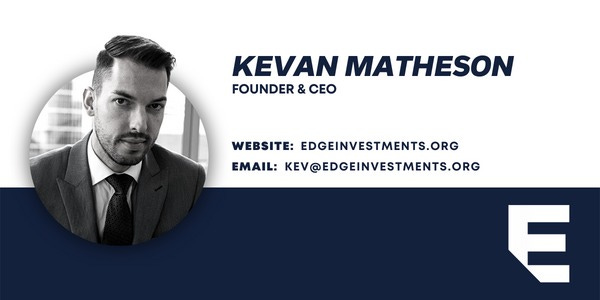💎 The Best Small-Cap A.I. Stock to Buy in 2022
Find out which small-cap A.I. stock is better than the rest.
Do you remember the good ol’ days of dial-up internet and flimsy flip phones?
Well, I hate to break it to you, but a lot has changed since then.
With computer technology evolving daily, and A.I. services becoming mainstream, planet Earth is going digital and it's happening a lot faster than you might think.
Heck, just to paint the picture, it was not so long ago (5 years) that a computer algorithm beat the world’s best player at the world’s most complicated game (see AlphaGo).
While all of this may feel overwhelming, and best to avoid, it is important to embrace the potential of artificial intelligence in today’s world because it is launching businesses into the stratosphere and you have the opportunity to bank on it.
So, how does one stay ahead of such a disruptive industry?
Well, the answer is not simple, but this age-old strategy holds true even for the most groundbreaking technologies:
Find businesses that create real value for society, possess an enduring competitive advantage, and have an honest & rational management team in place.
Today, we break down one such small-cap company that boasts a strong balance sheet, innovative product offerings, and a loyal consumer base that is fueling its growth.
To find out who we chose, continue reading below.
If you want to learn more about small-cap investing and what makes it an excellent investment strategy for the savvy retail investor, check out our “What is a Small-Cap Stock” article on our website @ EdgeInvestments.org.
A Quick Recap
Two weeks ago, we shared with you our deep dive into the Artificial Intelligence industry at large and offered five small-cap stocks shaking up the market.
Now that some time has passed, we are ready to settle the debate once and for all by giving you our pick for the best A.I. small-cap.
But before we do, here is our company comparable table so that you may decide on your own whether we are hustling you or not.
If you enjoy this newsletter, please be sure to like, share and subscribe so that we may provide more value for our audience.
And the Winner Is…
After a thorough analysis and much anticipation, plus a little blood, sweat, and tears, we determined that Magic Software Enterprises (MGIC) was the clear-cut winner.
While companies like Netlist, Mitek Systems, and Digi International all demonstrated the ability to grow rapidly and produce a strong balance sheet, it ultimately came down to Magic Software’s consistent growth, loyal consumer base, and valuation relative to its peers.
In a time when a recession is looming, investors want consistency, predictability, and security with their investments because uncertainty is at an all-time high.
Therefore the key to successful investing in this volatile market is to find a business that is well-positioned to withstand the impending economic headwinds and is bound to continue producing regardless of the adversity thrown its way.
Not only that, but buying the stock when it is priced lower than its peers is an excellent way to ensure additional safety because you avoid overpaying for a stock when it is possible that it might lose 50% of its value in the near term.
This applied margin of safety is crucial for any investment decision because it accounts for the human error that exists in every stock analysis.
As Warren Buffett would say:
“We want to buy something worth one dollar for fifty cents.”
Fortunately, Magic Software fits this criterion and is performing well even during an economic downturn.
If you’re not convinced, here are three more reasons why you should consider investing in this powerful A.I. Small-Cap Stock.
Magic Software’s Three Edges and a Risk
Edge #1: 80% of Magic’s revenue comes from long-term engagements with existing clients.
Magic Software’s unwavering commitment to its clients is something that is rare to find in today’s markets.
With over 80% of its revenues coming from its existing consumers, this is a strong indication of customer satisfaction and loyalty.
Having this sustainable revenue stream is a massive advantage because it allows Magic Software to continue growing while its competitors scramble to raise capital in a challenging economy.
With consistent cash inflows, the company can focus on strengthening its moat by continually innovating with new product offerings and acquiring complementary businesses.
As they grow, having a loyal client base will be crucial in solidifying Magic’s brand in the A.I. and software markets.
In other words, when a company is confident that it delivers tangible value for its customers, it can commit to enhancing its offerings rather than trying to grow its consumer base by dipping its toe into everything.
All-in-all, Magic Software is achieving success few businesses are capable of replicating.
Edge #2: Fully integrated, cost-effective, and tailor-made software solutions for all of its clients.
Magic’s focus on delivering complete end-to-end solutions for its customers creates a stickiness similar to the likes of Microsoft or Apple.
If a customer is familiar with a specific platform, and it is easily integrated throughout all facets of the business, then it doesn’t make sense from a consumer lens to adopt other technologies that fail to mix well with the current system.
This switching moat is a huge advantage because the customer already trusts the existing solution, and the cost of changing to a new platform exceeds the convenience of staying on the current, less optimal system.
Not only is it inconvenient for the client to switch, but if Magic over-delivers on its promises like it is doing, then the thought of switching never exists because the customer is already super satisfied with the services being provided.
Edge #3: Growth is driven by new clients in resilient industries.
Having products and services that fulfill the needs of resilient industries is extremely beneficial because it means that they can count on demand from their customers even during the hard times like we are currently facing.
With most of its growth being driven by new contracts in the healthcare and defense space, Magic Software can modestly expect that revenues will continue pouring in because these sectors are partially or wholly funded by government entities.
These “too big to fail” type clients are immensely valuable for a company like Magic since they will only struggle a minor amount relative to other companies, thus making them reliable customers.
Ultimately, customers that fit this criterion ensure a stable revenue stream no matter the economic climate and are an excellent boost of confidence for shareholders.
Risk: Limited trading volume
As is demonstrated in the company comparable table above, Magic Software possesses the smallest free trade float (number of shares available in the secondary market), and average trading volume over three months out of any of the stocks mentioned in this newsletter.
As such, Magic Software is highly susceptible to violent price fluctuations due to the limited number of active participants trading the small-cap stock.
If a major investor were to buy or sell a large number of shares, this can have an adverse effect on the stock price whereby the size and value of the business change drastically.
While this does not affect the long-term investor as much, those who are looking to trade frequently might have difficulty buying or selling at their desired price if the stock price is changing as often as they are.
For the investor with a shorter investment horizon, it is recommended that you consider small-cap stocks with higher liquidity.
Did we choose the right small-cap stock? Let us know in the comments by connecting with us on one of our platforms: Instagram, LinkedIn, or YouTube
This newsletter is written by Kevan Matheson, Founder & CEO of Edge Investments.
Prior to starting Edge, Kevan was an Institutional Analyst at RBC Global Asset Management, one of North America’s largest fund managers, with assets under management in excess of $400 billion.
After spending the majority of his career focused on large market capitalization public companies, Kevan became attracted to the risk/reward proposition of growth stocks and cryptocurrency.
In 2017 Kevan published a book on investing in cryptocurrency, where he speculated on the coming growth in NFTs and the underlying tokens that power their ecosystems.
Known in the growth stock community as Small Cap Kev, his current passion is finding stocks in disruptive industries like blockchain, psychedelic medicine, plant-based meat alternatives & much more.
This article was written in collaboration with Edge Investments’ analyst & writer, Declan O’Flaherty
Declan holds a Bachelor of Commerce from the University of Alberta and has over 2 years of experience investing in financial markets.
As a value investor, Declan embraces the lessons of Warren Buffett and his disciples when making investing decisions. With an emphasis on business fundamentals, his strategy focuses on finding stocks with excellent management, a competitive advantage, and those that are selling at discount to their real value.










